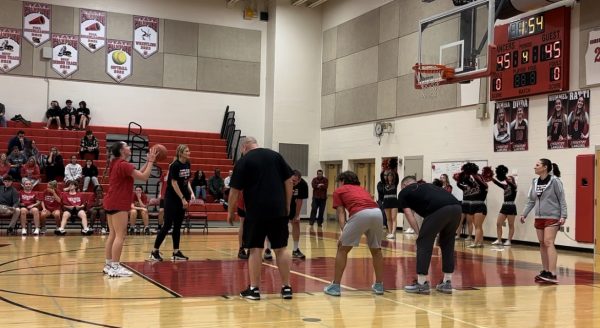Why do athletes have superstitions?
October 29, 2013
Some of the most important things to athletes include their work ethic, their talent, and even their equipment, but there is one thing that could overpower all of these assets: superstitions. These pre-game rituals can make or break a player’s performance that day. Whether it’s eating a stack of pancakes for breakfast, putting on the uniform in a specific order, or just wearing a lucky bracelet, almost all athletes have something that they make sure gets to do before every game.
Many people believe that baseball is one of the more superstitious sports. The most superstitious of baseball players are always the pitchers. Senior pitcher Chris Stephey has some rituals of his own. Stephey says, “For away games, I bring a bag of Mini Wheats.” He also always wears two pairs of socks for every game. He says that he doesn’t really believe that these superstitions work, but they are “traditions that I go through that I’ve just gotten used to.”
There is a psychological factor when it comes to superstitions. In reality, it would seem that superstitions don’t have a real effect on the outcome of a game, but the mental tension that a player can go through before a game can be overwhelming.
According to a study published online in 2006 by Michaela Schippers and Paul Van Lange, two professors at universities in the Netherlands, they believe that superstitions calm this mental tension and give athletes a sense of security before a game. “If one is quite confident that one will beat the opponent, then the uncertainty should be low.” They believe that a superstition or ritual provides an athlete with that confidence. “It often has been assumed that the illusion of control tends to… play a substantial role.” If an athlete is able to control when he or she does a specific action (the superstition) then that athlete feels that they can be in control of the game.
Schippers and Van Lange conducted a poll asking athletes from soccer, volleyball, and hockey what kinds of superstitions, if any, they practiced before a game. The top three rituals mentioned for all three sports was eating a specific food, wearing special clothes, or entering the field in a set order. The total amount of superstitions among the 197 athletes interviewed was 449; which is an average of just under three superstitions per athlete.
Sophomore Thomas Lang plays basketball for Linganore. He eats a special food before every home game. “I always buy a Chick-Fil-A sandwich and a bag of Skittles.” Lang says he does it to, “get energy for a game.” He believes that athletes have superstitions because it is a routine that they always have to get mentally ready for a game.
Whether superstitions work or not, they will stay with sports for a long time and continue to reinforce a player’s confidence in his game.













